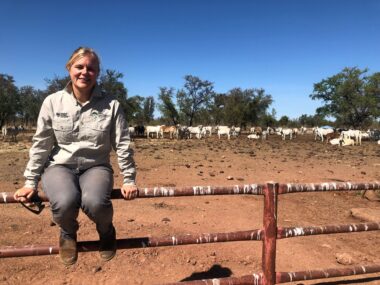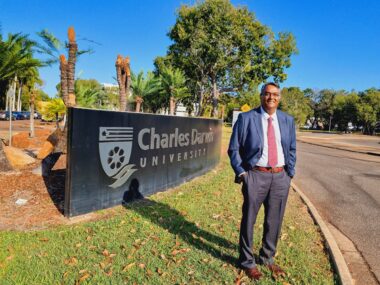A former journalist and now leading communications academic will share how early career scholars can use their research findings to create lasting, real-world change at Charles Darwin University’s (CDU) 2024 Higher Degree by Research (HDR) Conference.
The theme of this year’s conference is ‘Purposeful Research – Making a Change in Real Life’, giving HDR and honours students a platform to showcase their research, exchange ideas with peers, and learn how they can influence change through their findings.
This year’s keynote speaker is Griffith University School of Humanities, Languages and Social Sciences Professor Jacqueline Ewart, who will discuss how early career scholars can ensure their research has real-world impacts in her presentation ‘Research: Making it Real: How to make your research matter’.
Professor Ewart will break down how academics can tackle an issue or develop solutions, how they can make their findings useable, and how to apply their research in the academy, government, industry and beyond.
“Academics are in positions of absolute privilege to be able to help address issues and solve problems,” Professor Ewart said.
“In the last decade or so, government and industry has increasingly realised the importance of research and a lot of academics are now working in ways to address the problems that face industry and government.
“There’s increasing recognition of research and we need to maintain that momentum.”
Professor Ewart will also discuss the importance of distributing research findings to the public.
“Part of our jobs is to communicate with the public what it is we’re doing, this is what we do, and this is how we solve problems and bring new approaches,” Professor Ewart said.
“Communication is absolutely essential.”
Professor Ewart was a journalist and media manager for more than a decade, and has worked as an academic for the past 27 years.
Her research focuses on communication of extreme climate change events and the involvement of politicians in these types of incidents. She also researches news media representations of minority groups including Muslims and Indigenous Australians.
Professor Ewart has authored, co-authored and edited eight books, including Planning your Academic Publishing Journey and Managing Your Academic Research Project.
This year’s HDR Conference will be held online from August 28 to 29.
Registrations are open and the full program is available.
Contact details:
Emily Bostock
Media and Communications Officer
T: +61 8 8946 6529
M: 0432 417 518
E: [email protected]


